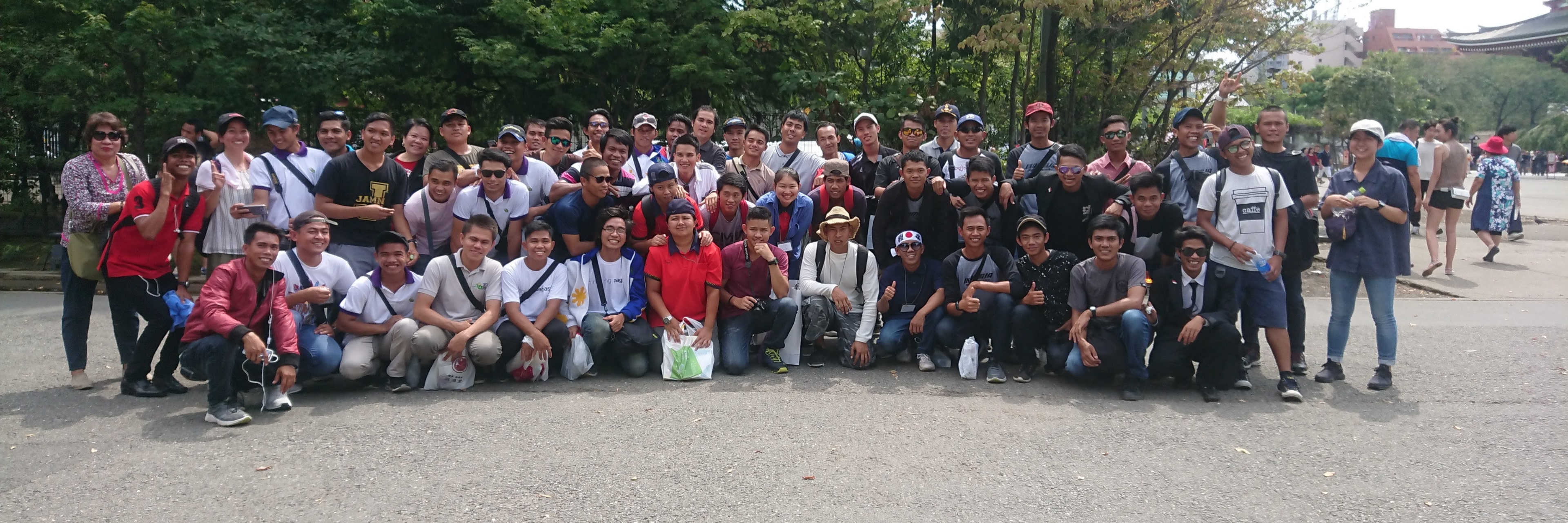
Asian Agricultural Youth Human
Resources Development Project
A project that supports the future of agriculture in ASEAN countries!
A project that supports the future of agriculture in ASEAN countries!
www.jaec.org/asia/ The following pages use cookies so that you can browse them comfortably. In addition, on some pages, customers can watch YouTube videos via this site (using the YouTube IFrame player API). Therefore, please read the YouTube Terms of Use carefully before browsing this site (Youtube Terms of Use are here ). In addition, when browsing the above range pages including this page, by closing this modal window or continuing to browse, we assume that you consent to the use of cookies and understand the YouTube Terms of Service. I will do it.
CONTENTS
CONTENTS
1.History of Asian Agricultural Youth Human Resources Development Project
40 years for the development of agriculture in Asia
40 years for the development of agriculture in Asia
1.History of Asian Agricultural Youth Human Resources Development Project
40 years for the development of agriculture in Asia
40 years for the development of agriculture in Asia
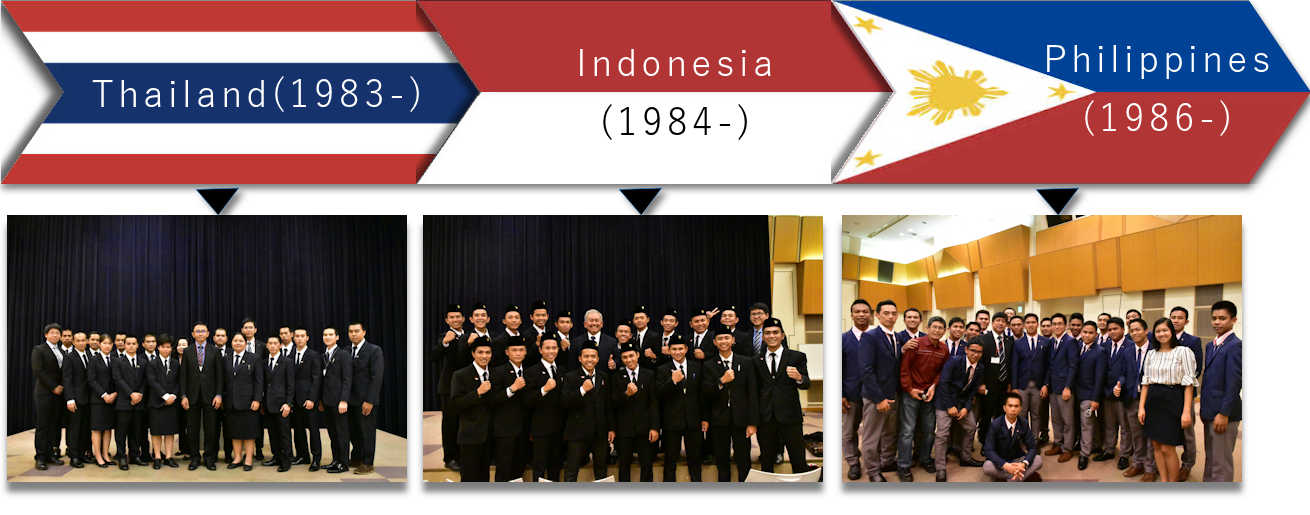
Objective
Objective
As part of the Japanese government's ODA project (government development assistance), agricultural youths from ASEAN countries, etc.
will acquire Japanese-style production technology through agricultural training that combines practice at Japanese farmers and specialized education at agricultural education institutions, as well as food.
By acquiring the knowledge and know-how to improve the added value that is indispensable for building a value chain, we aim to contribute to the development of domestic agriculture and to develop human resources who can be a bridge with Japan.
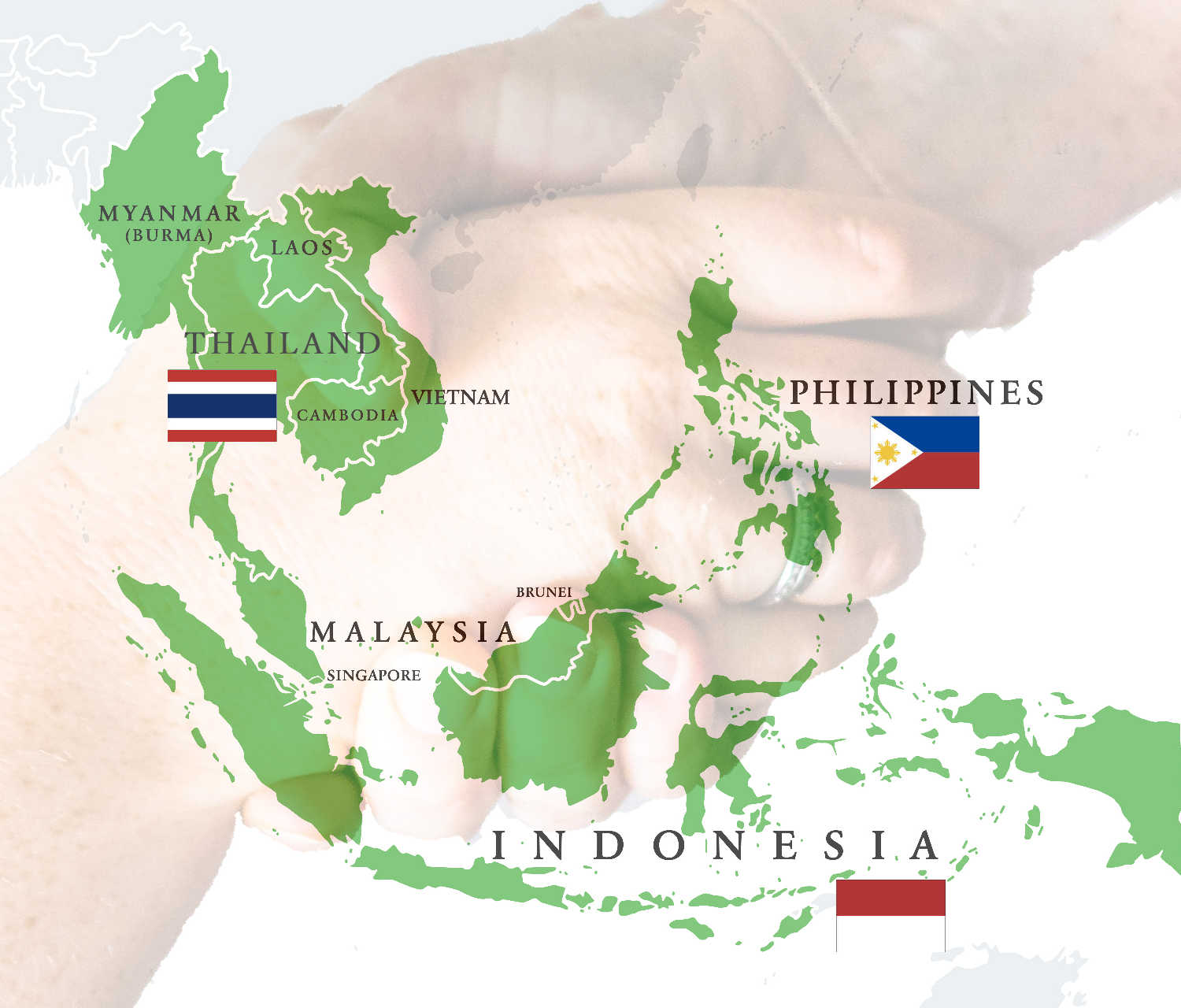
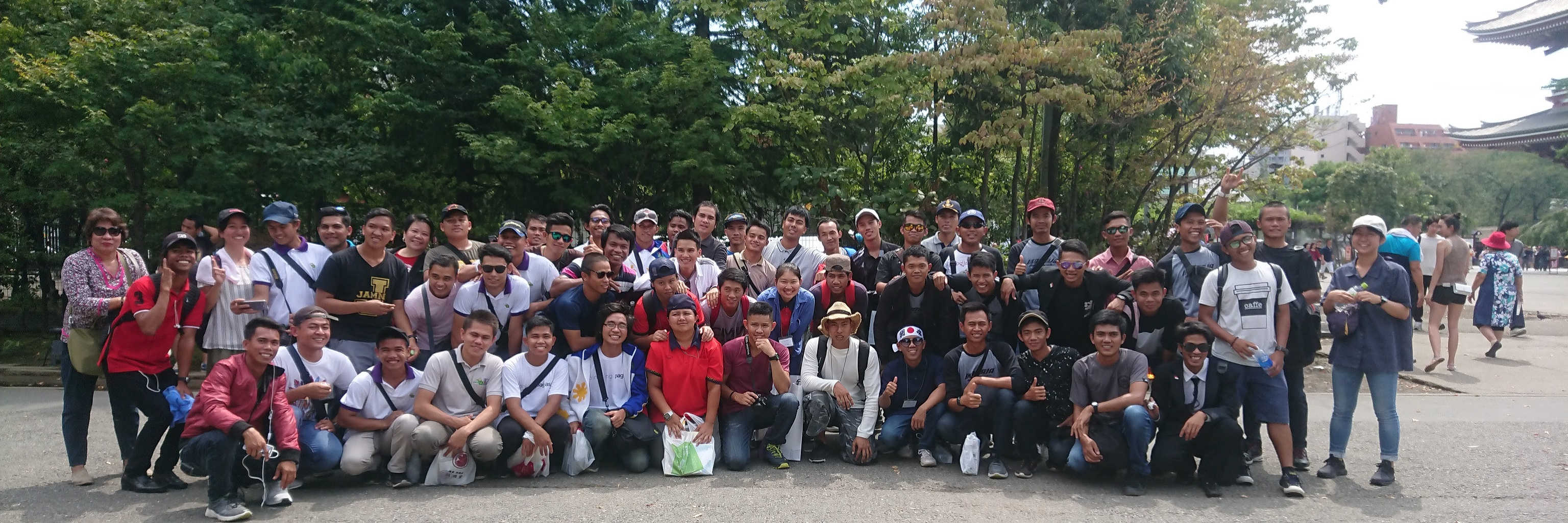
Above) Group photo of past trainees. A moment between busy training.
2.Training flow
2.Training flow
11-month training flow
11-month training flow

STEP1.
During the first two weeks
STEP1.
During the first two weeks

During the first two weeks after entering Japan, all trainees will have an orientation.
After the reception ceremony, the trainees will take a Japanese language class and a lecture on agriculture. In addition, this training will also cultivate the attitude of the training life, such as the way of thinking and approach when living and working in rural Japan.
right) Opening ceremony
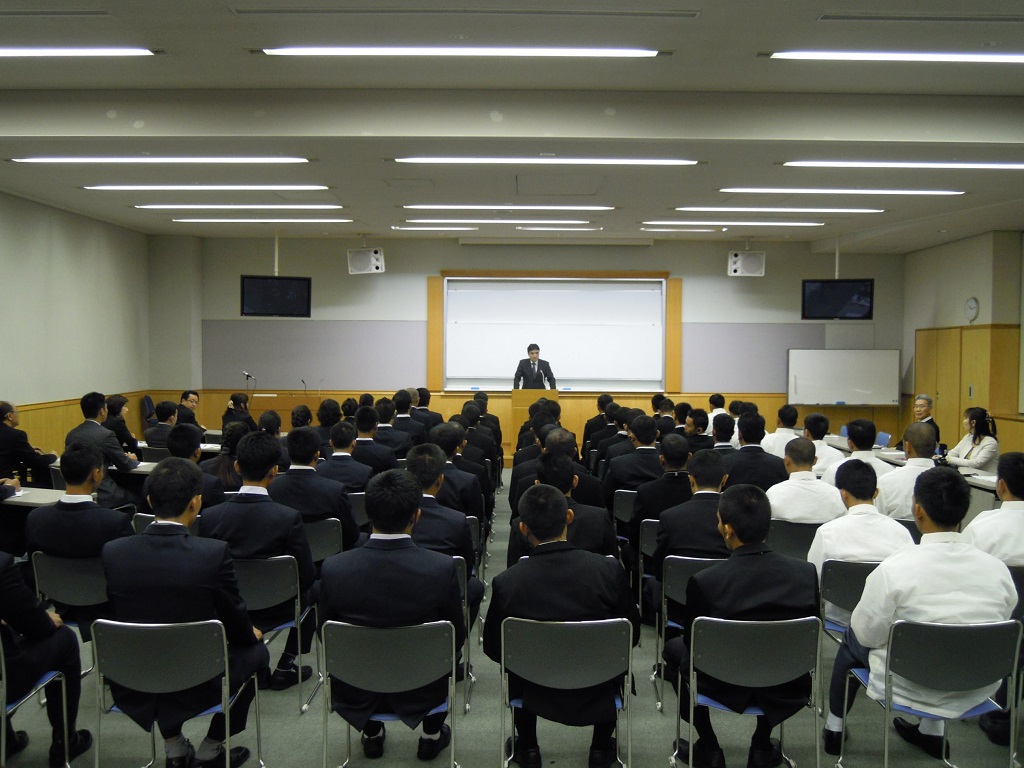
STEP2.
9 months after basic training
STEP2.
9 months after basic training

Immediately after completing the basic training, each trainee will be assigned to farmers all over the country and the farmer training will begin.
You can study at farms of various occupations that meet the trainees' wishes, such as vegetables, fruit trees, dairy and livestock.
By living and working with the farmer, you can learn not only agricultural technology but also advanced management technology.
Right photo) One frame during training at the accepting farmer
Below photo) One frame during training at the accepting farmer
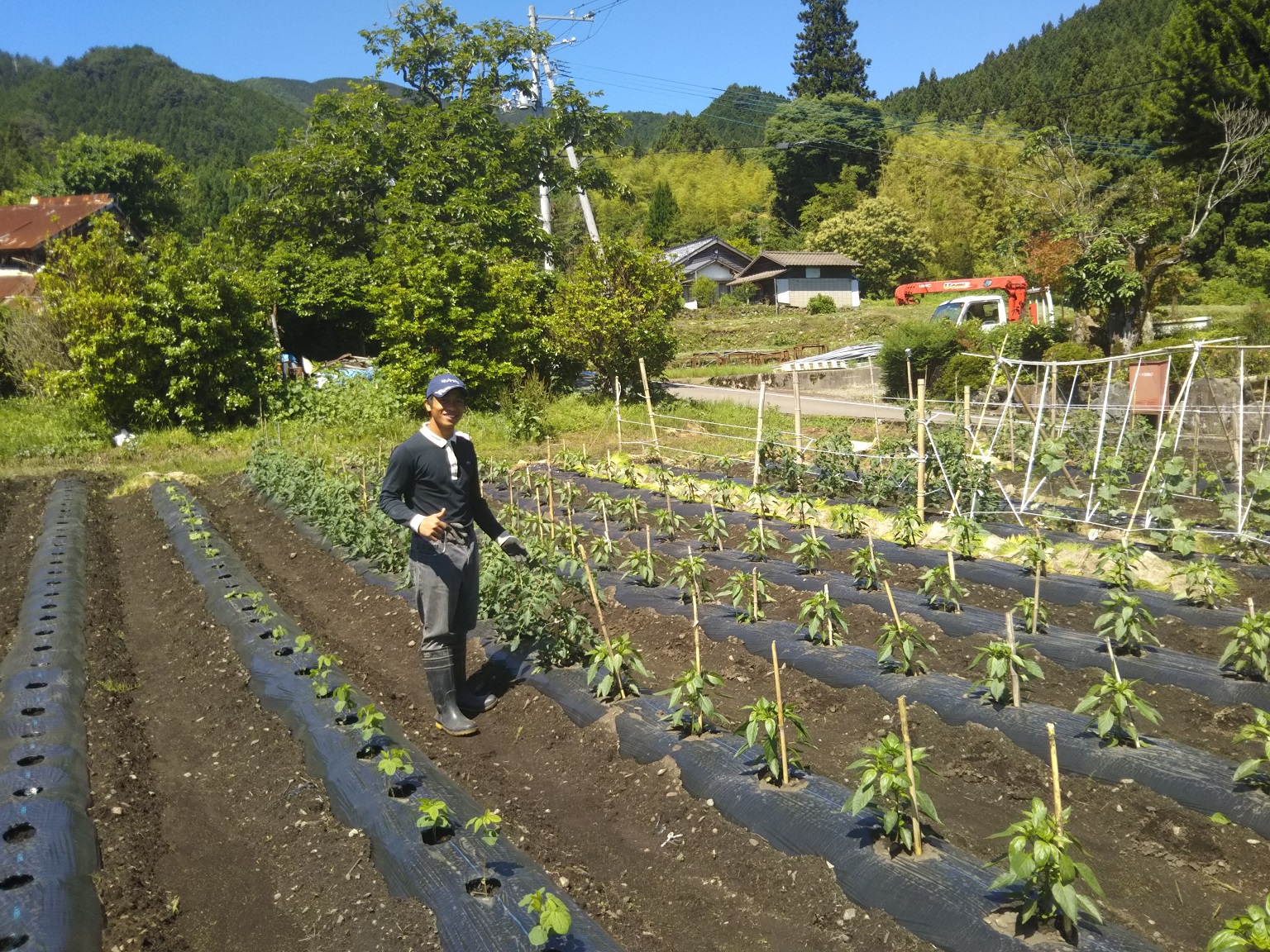
STEP3.
Once you get used to the work of the host ..
STEP3.
Once you get used to the work of the host ..

About three months have passed since I was assigned to a farmer, and when the trainees have become accustomed to work, the trainees will gather in one place again and group training will be held.
Although it is a short training of about 10 days, lectures centered on the department are given, and by interacting with trainees working at other farms, various Japanese agriculture can be experienced.
It's an opportunity to learn.
Right photo) State of school lesson training
Below photo) State of school lesson training
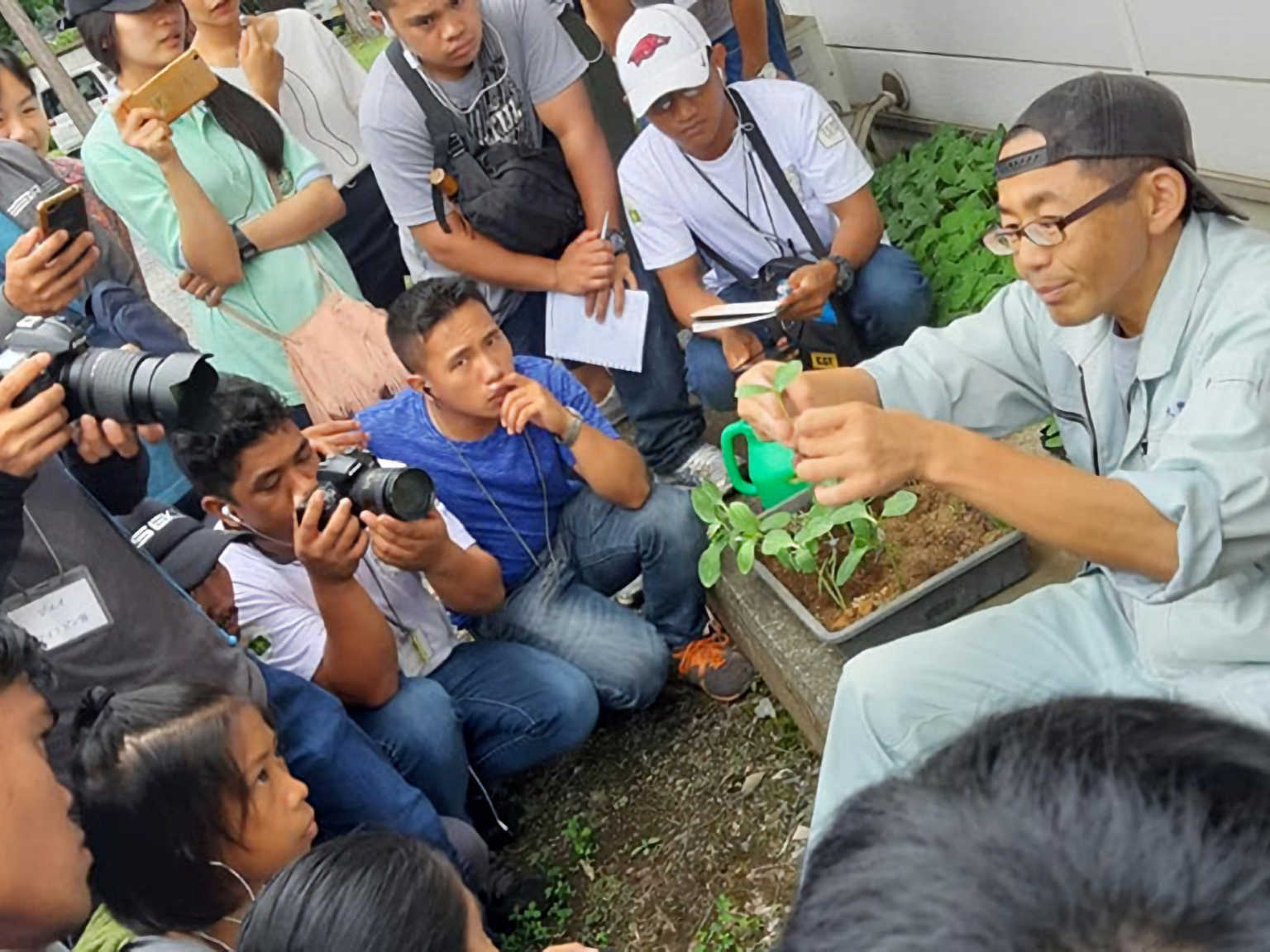
STEP4.
Finally, look back on the training and complete it
STEP4.
Finally, look back on the training and complete it

At the end of the 9-month farmer training, the final training will be held for 4 days.
By looking back on the training, after reflecting on the lessons learned in Japan, the completion ceremony will be held and the training in Japan will end.

* The above schedule is just a guide.
3.About the recipient of farmer training
3.About the recipient of farmer training
From Hokkaido in the north to Okinawa in the south, many farmers are participating as recipients!
From Hokkaido in the north to Okinawa in the south, many farmers are participating as recipients!
The trainees of this project are accepted by many farmers nationwide, from Hokkaido in the north to Okinawa in the south.
Farmer training is an opportunity for trainees to learn about agricultural technology and Japanese culture, and it is also a grassroots international exchange place for host farmers to come into contact with the culture of other countries.
We are looking for new farmers who can accept trainees in the future.
We are also recruiting from prefectures other than those listed, so if you are interested, please see "6. Recruitment of Accepting Farmers".
(Map below) The light blue prefecture is the municipality where the host farmer is located.
(Map below) The light blue prefecture is the municipality where the host farmer is located.
Hokkaido
Aomori Prefecture
Iwate Prefecture
Miyagi Prefecture
Fukushima Prefecture
Tochigi Prefecture
Ibaragi Prefecture
Chiba Prefecture
Tokyo
Saitama Prefecture
Kanagawa Prefecture
Nagano Prefecture
Shizuoka Prefecture
Aichi Prefecture
Fukui Prefecture
Kyoto
Wakayama Prefecture
Okayama Prefecture
Hiroshima Prefecture
Ehime Prefecture
Fukuoka Prefecture
Saga Prefecture
Kumamoto Prefecture
Miyazaki Prefecture
Okinawa Prefecture
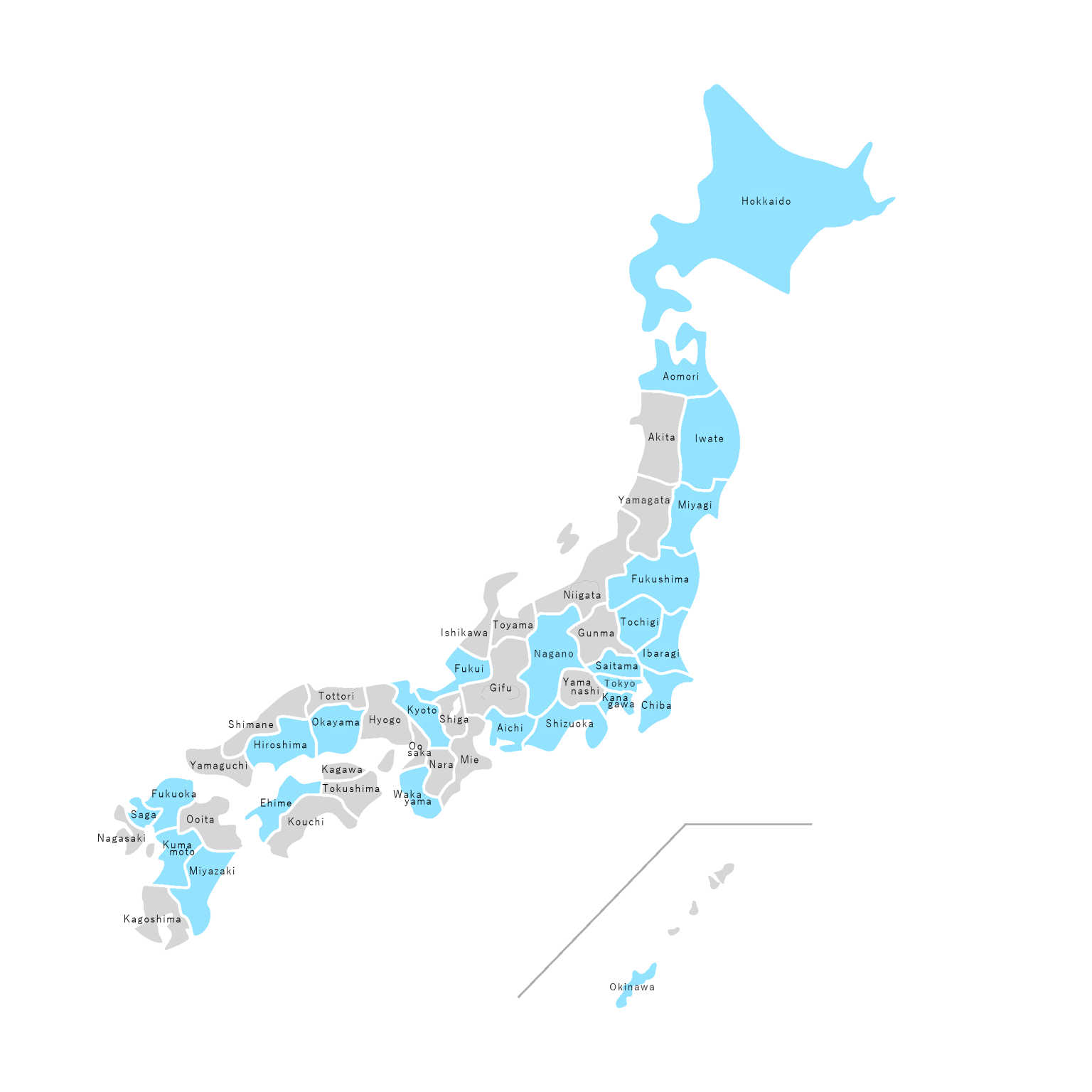
2019 Acceptance Results
2019 Acceptance Results
4.Follow-up after returning to Japan
4.Follow-up after returning to Japan
\We continue to support the trainees even after graduation!/
\We continue to support the trainees even after graduation!/
We survey and follow up on agricultural management in our home countries for trainees 5 to 10 years after their return to Japan.
Farmers who have been accepted in Japan also participate in the follow-up tour to check whether they are practicing the techniques they have taught and to give advice tailored to the site.

1. Follow-up tour
1. Follow-up tour
After returning to Japan, we are conducting a tour to observe local efforts for alumni of trainees who run agricultural management in their own country.
Not only the staff of the association but also some of the host farmers are participating.

2. Questionnaire survey
2. Questionnaire survey
We will investigate the activity status such as what kind of course the trainee alumni are following after returning to Japan and whether they can make use of their learning in Japan.
The results are fed back to the training in Japan.

3. Local exchange meeting
3. Local exchange meeting
It is a place for continuous exchanges, such as reuniting with Japanese farmers, making memories bloom, and reporting on the latest situation.
5.Recruitment of host farmers
5.Recruitment of host farmers
We are looking for people who sympathize with our business and cooperate with us.
We are looking for people who sympathize with our business and cooperate with us.
We are looking for a host farmer who will support our business.
We are looking for people who sympathize with and cooperate with the association's business of raising young people who will be responsible for agriculture in Asia in the future.
Please refer to the following outline for application details and application form.
If you have any questions, please feel free to contact the person in charge of the association.
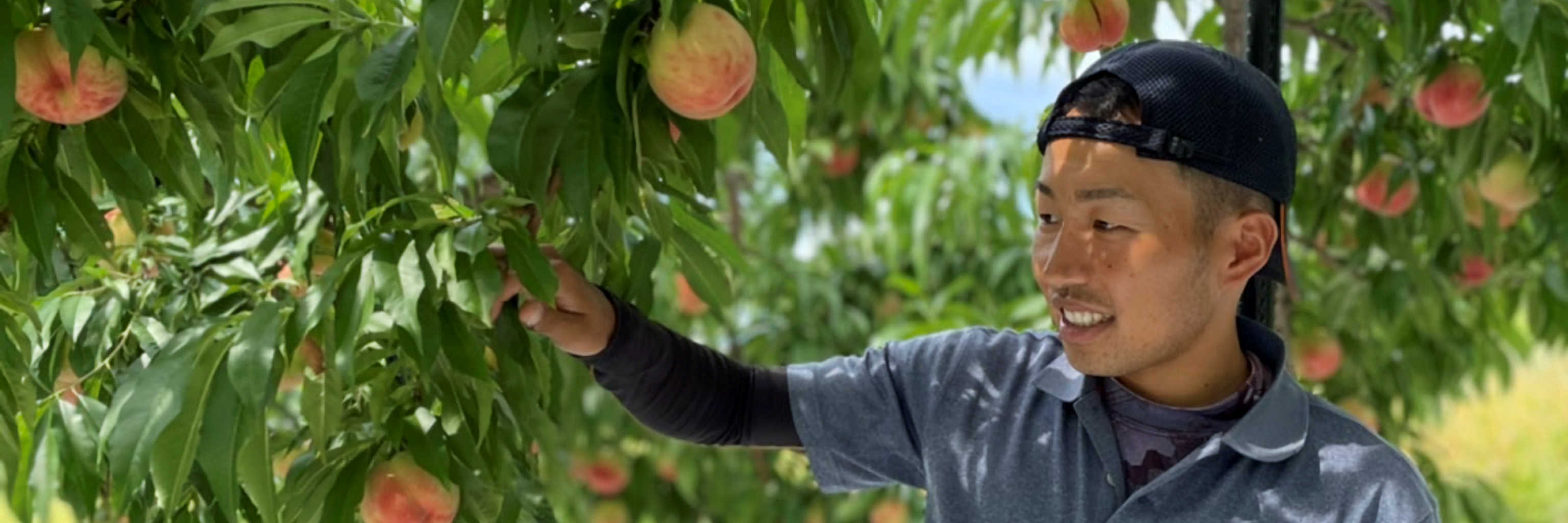
Accepting farmers, recruitment requirements
Accepting farmers, recruitment requirements
Conditions
Conditions
①. Being an alumnus of the Society's overseas agricultural training or being a member of a prefectural organization.
②. A farmer who understands the purpose of this project well and has a spirit of service and cooperation.
③. A farmer with excellent agricultural management and agricultural technology.
④. Create a farmer training plan (Attachment 2) based on the farmer training plan preparation guidelines (Attachment 1), and follow it. A farmer who can instruct trainees.
⑤. A farmer who treats trainees as a member of the family and can provide food and housing free of charge.
⑥. A farmer who can always provide a weekly holiday.
⑦. A farmer who can give trainees an opportunity to become familiar with Japanese culture and rural society.
⑧. A farmer who can actively strive to understand the culture of the trainees.
⑨. A farmer who is a member of a prefectural organization that is a regular member of the Society.
Cost
Cost
Approximately 1 million yen (depending on the year)
Download application documents
Download application documents
6.Past business report
6.Past business report
For those who want to know more about this project
For those who want to know more about this project
For those who want to know more about this project, the following two reports are posted.
(1) "Training business report" that summarizes the details and results of training in Japan.
(2) "Follow-up survey report" that summarizes the course and efforts of trainee OBs after returning to Japan.
Click the report you want to view to open another page, which you can view on your browser. You can also download it.

Training business report
Training business report

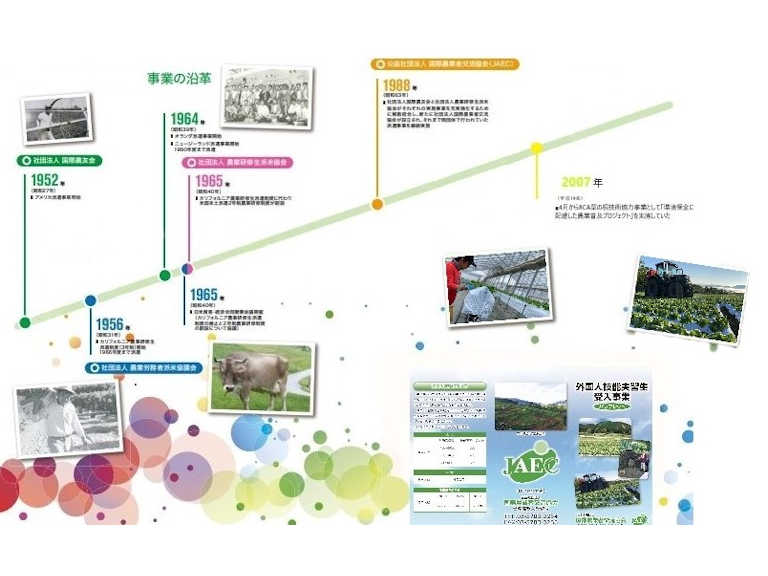
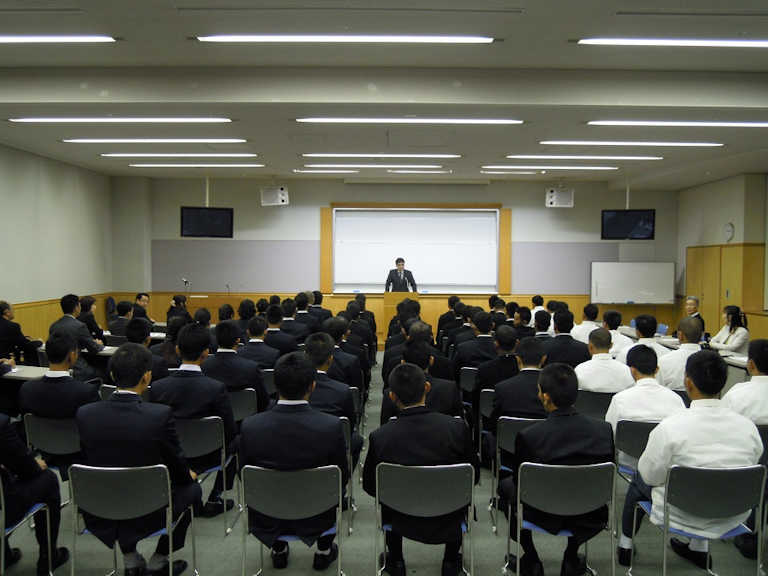
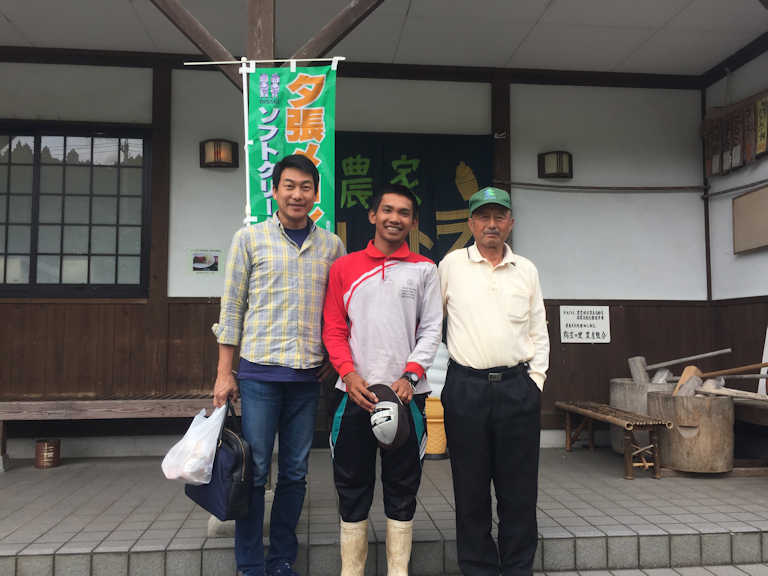
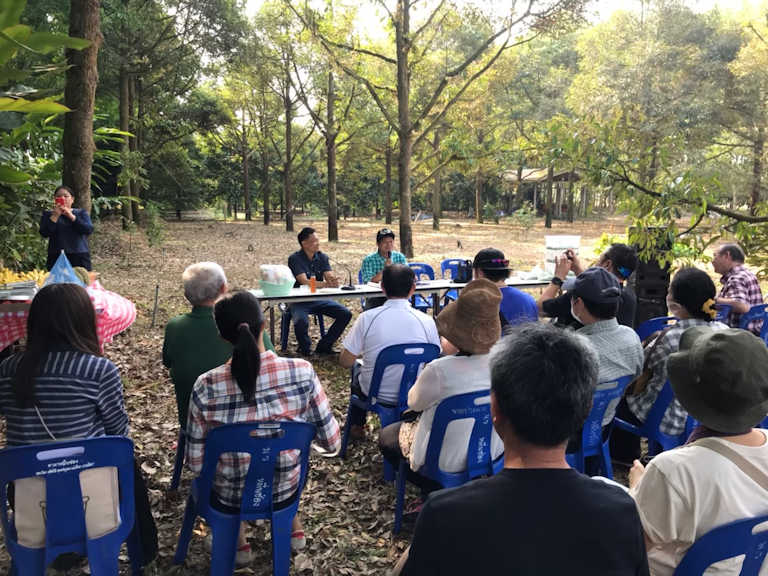
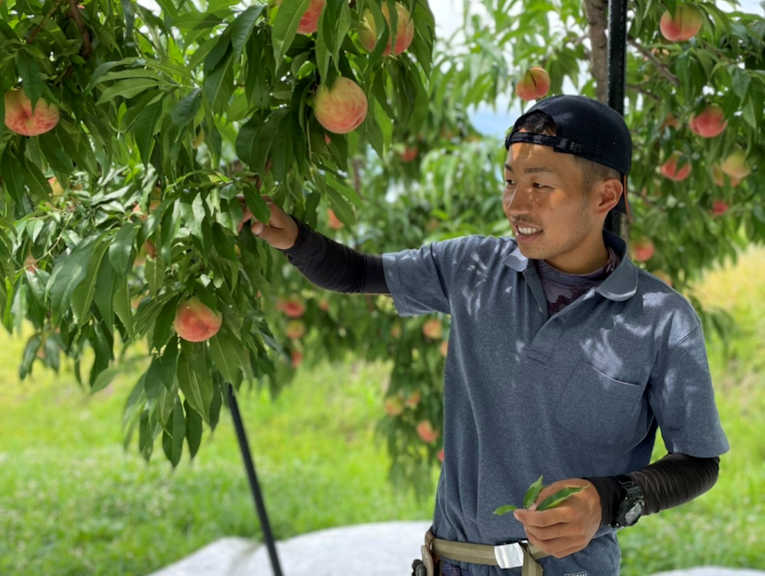
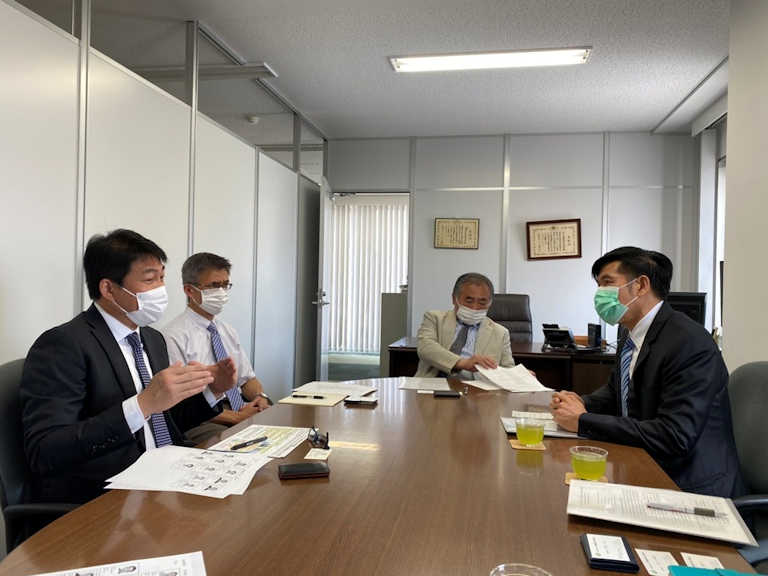
 Acceptance of ASEAN Trainees
Acceptance of ASEAN Trainees